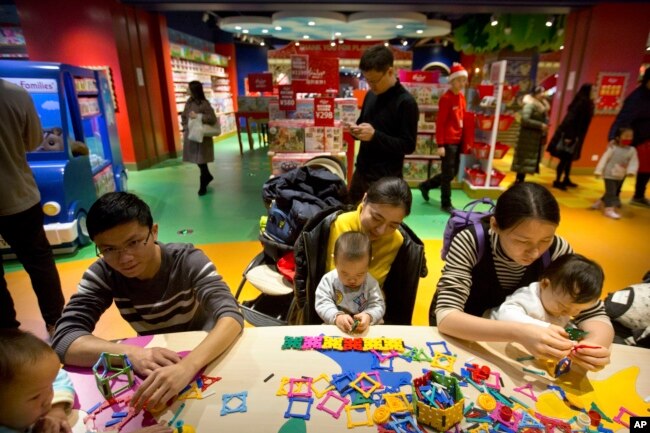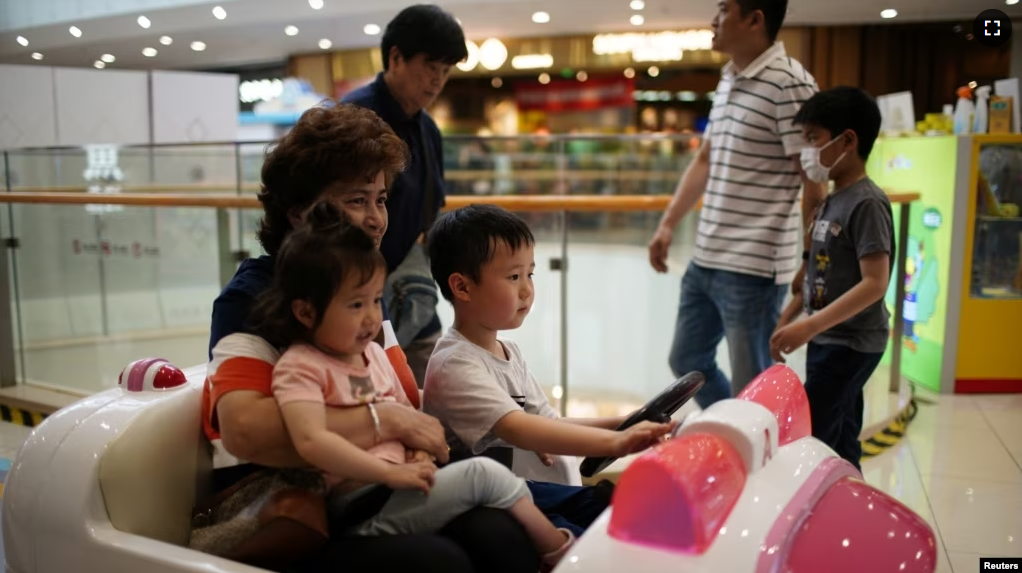China’s government has given specific guidelines for citizens in an effort to increase the country’s birth rate.
A series of proposals were made earlier this month at China’s yearly People’s Political Consultative Conference (CPPCC). The guidelines include giving government assistance to families raising their first child, expanding free public education, and improving the availability of fertility treatments.
One CPPCC member, Jiang Shengnan, suggested that young people work only eight hours per day so they will have time to “fall in love, get married and have children.”
China enforced a one-child policy from 1980 to 2015. The government raised the limit to three children in 2021, but couples are still not having children. Even in recent years during the COVID-19 pandemic, many couples put off having babies.
Official data from last year showed China’s population shrinking for the first time in 60 years.

Young people say high childcare and education costs are the main reasons they choose not to have children. Other reasons include low earnings, weak social policies and inequality between men and women.
Xiujian Peng is a researcher at the Centre of Policy Studies at Australia’s Victoria University. She told Reuters news agency it is very difficult to change behaviors related to birth rates. “But without any fertility encouragement policy, then fertility will decline even further,” she said.
Offering incentives to have a first child might persuade couples to have at least one child, Peng said. Many local governments only provide assistance for second and third children.
To help ease the pressure on young families, China’s National Health Commission recently proposed new rules. Among them is a policy that would permit day care operations to accept as many as five children from a family who are up to three years old.
Last year, China’s birth rate fell to 6.77 births per 1,000 people. That was down from 7.52 births in 2021, the lowest on record.
Population experts have warned that China will get older before it gets rich. This will lead to a smaller workforce and could cause local governments to spend more on their older citizens.
Another proposal would remove all family planning measures, including the three children limit and a requirement for women to be legally married to register their children.
Arjan Gjonca is a professor at the London School of Economics. He told Reuters he thinks financial incentives are not enough. He suggested that policies centered on gender equality and better employment rights for women would be more effective.
I’m Bryan Lynn.
Reuters reported this story. Bryan Lynn adapted the report for VOA Learning English.
______________________________________________________________
Words in This Story
fertile – adj. able to have babies
couple –n. two of something
encourage – v. attempt to make someone more likely to do something
decline – n. a decrease
incentive – n. something that persuades a person to act in a particular way
gender – n. the state of being male or female
